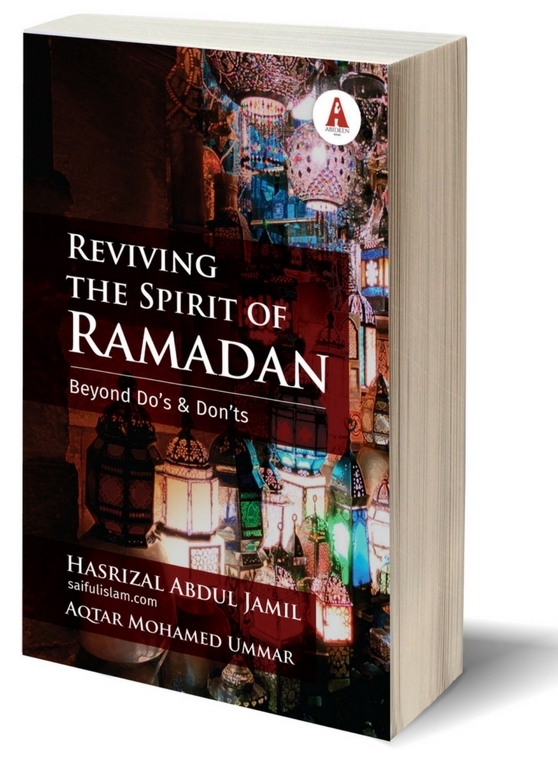
It is indeed a lonely battle. Perhaps a slow process to adapt to all the new routines. No more ‘Ustaz Hasrizal, no more sermons in the mosque, and no adhaans even from the minarets of mosques to signify that is it time to pray. Living in Europe is not something new to me. Six years of living in the UK and Ireland, more than a decade ago, exposed me to many unique experiences, but none like what I am experiencing currently, as a Muslim in Northern Scandinavia, 200 km south of the Arctic Circle.
Halal food is very limited. We eat mainly home cooked food. Performing basic devotional acts like the five daily prayers is challenging enough. In December and January, we had the shortest Zuhr time, as short as 9 minutes, while Fajr prayer commenced when I was in the middle of the second lecture of the the dark and freezing (subzero-temperatures) morning. This new surrounding has really forced me to relook at what I understand about Fiqh in Islam and has given me a new appreciation of the dynamism of the Shariah which serves to help Muslims practise Islam without difficulty, no matter how odd the context they live in.
It is not only about me and my wife but more importantly, our children. They are also dealing with a new environment. Their understanding about Islam and being Muslims is challenged to the core. They are not only questioned by peers from time to time, but our children themselves have many questions to ask.
Rarely do they ask HOW questions these days. There are many books written to answer these questions. Under the Finnish education system, they also receive religious education at school, specifically about Islam. From time to time, HOW questions are answered and modeled in class.
Most of the time, thinking intrinsically about Islam has led them to ask WHY questions. Something beyond HOW, even WHEN and WHAT. The WHY questions require us to understand Islam, beyond do’s and don’ts, questions which we do not think about as often as we should. It is this lack of depth in the understanding of religion that gave rise to the magnum opus Ihya’ ulum al-din, “Revival of Religious Sciences”, of the great scholar of Islam, Abu Hamid al-Ghazali (1058 – 1111). It is only by answering WHY questions can our practice of Islam have an effect on our souls, values and hence give meaning to the rituals we perform as religious people.
This small book was written almost a decade ago. It invites the readership to simply think but not think simplistically, how Ramadan in reality is a help from Allah to aid us better ourselves. Ramadan entails fasting, prayer, recitation of the Quran, giving charity and making amendments. Ramadan brings about physical, intellectual, emotional and social benefits stemming from spiritual strength. It is that spiritual strength that links rituals with meanings, and the actions of the servant with the judgment of his Lord.
I wish for my children to read this book in the language of their study and social life. My wife too always reminds herself and me the need to assess from time to time our children’s understanding and appreciation of Islam. Thus, the translation of this book is timely, as a fulfillment of that wish and need. This translation, will not merely be a gift from a father to his kids as a learning tool on how to adapt to life in Finalnd, but it is an endeavor to share the knowledge and experience in the original book with a wider audience.
I wish to thank my friend, Aqtar Mohamed Ummar who kindly offered to translate this book. The friendship and understanding which has developed between us for a long time has been of great value in helping him to translate what I wish to convey in the book. Our history began once upon a time with me speaking and him listening, and as fate would have it, we now work together under one roof in Khalifah Model School Secondary (KMSS), aspiring to provide a good education to future generations. It is hoped that this book marks the beginning to more synergies in the future.
I also wish to thank my friend Ahmad Shakir Salleh and Ariff Jauhar Iskandar from Abideen Books for their great effort and commitment in getting this translated copy published. Your efforts culminating in the publication of this book have helped to convert thoughts and words into a reading material which will help spread knowledge and goodness. May Allah reward us all with goodness in this world and the Hereafter.
Let us revive Ramadan by asking, WHY, so that the answer to that question will help us increase our faith and hope, in being granted good by Allah, as Rasulullah (PBUH) promised:
“Whoever observes fasts during the month of Ramadan out of sincere faith, and hoping to attain Allah’s rewards, then all his past sins will be forgiven.”
HASRIZAL
Oulu, Finland
WHERE TO BUY (AS IN 2021):
 Saifulislam.Com Pendidikan Jalan Islah
Saifulislam.Com Pendidikan Jalan Islah
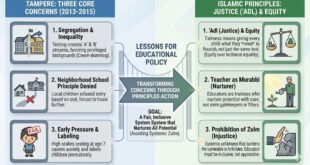
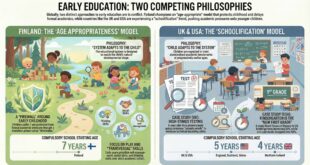
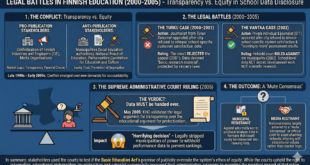
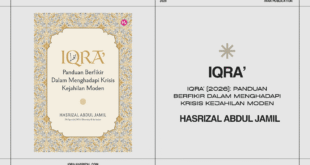
Assalamualaikum Ustaz,
may I know whether this book is still available?
Waalaikum al-Salam. It can still be purchased via Amazon, or by contacting https://www.facebook.com/abideenbooks/